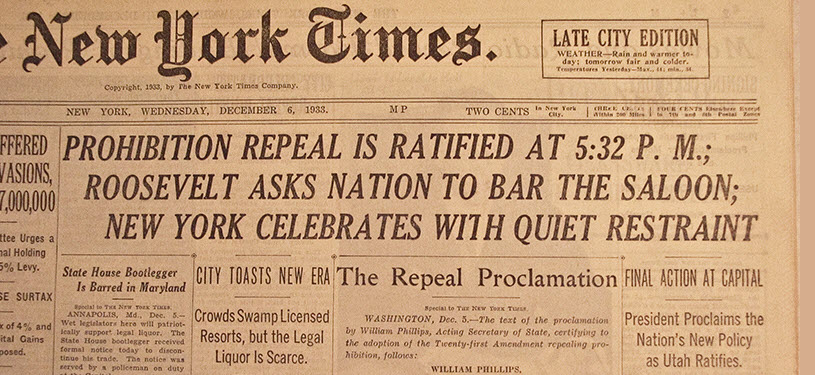The 18th Amendment only forbade the manufacture, sale, and transportation of intoxicating liquors, not their consumption. So by law, any wine or beer Americans had stashed away in January 1920 were theirs to keep and drink in the privacy of their homes.
Even after the repeal of Prohibition, some states maintained a ban on alcohol within their own borders. You couldn't legally get a drink in Mississippi until 1966. Mississippi was the last state in the Union to repeal prohibition, after Oklahoma in 1959 and Kansas in 1948. To this day, many states still contain counties where alcohol sales are prohibited.
In 1932, Franklin D. Roosevelt ran for president on a platform that included ending Prohibition. That is mainly why he won the election.
Prohibition cost the government a total of $11 billion in lost tax revenue and it cost over $300 million to enforce. It has been estimated that during Prohibition, $200 million worth of business was transferred from the brewing industry and bars to bootleggers and gangsters.

(Trail, Distillery)